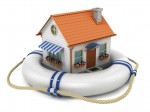How To Clean Reusable Shopping Bags

 We are all being more cautious these days, but it’s always been important to take good care of the bags you use to carry your food.
We are all being more cautious these days, but it’s always been important to take good care of the bags you use to carry your food.
Serving South Florida


 We are all being more cautious these days, but it’s always been important to take good care of the bags you use to carry your food.
We are all being more cautious these days, but it’s always been important to take good care of the bags you use to carry your food.
Filed under: Blog, coronavirus, Exclusive Buyer Agency, Exclusive Buyer Agent, Home Buyer Advice, Home Buyers, Home Maintenance, home safety, Homebuyer Advice, real estate news by Kim Bregman
Comments Off on How To Clean Reusable Shopping Bags

For many people, staying safe from the new coronavirus means staying home. But infectious germs can live in your house, too.
Although the CDC has not found evidence of surface-to-person transmission to date (which is good news!), the virus may live on surfaces for hours to days, making regular cleaning and disinfecting a wise practice during this time.
To minimize the risk of getting sick, the Centers for Disease Control and Prevention recommend taking action to disinfect high-touch surfaces, such as countertops, doorknobs, cellphones and toilet flush handles, since some pathogens can live on surfaces for several hours.
Here are some other tips for staying safe at home:
The CDC recommends washing hands vigorously with soap and water for at least 20 seconds. As a backup, use hand sanitizers that are at least 60% alcohol.
The Environmental Protection Agency recently released a list of approved disinfectants to kill coronavirus. For surface cleaning, look for products such as wipes, sprays and concentrates that say “disinfectant” on the label and include an EPA registration number. These are required to meet government specifications for safety and effectiveness. For a homemade disinfectant, the CDC recommends mixing a quarter-cup of household chlorine bleach with one gallon of cool water.
After disinfecting food-prep surfaces such as cutting boards and countertops, rinse them with water before use.
For laundry, use detergent and bleach (for white loads) or peroxide or color-safe bleach (for colors) to kill germs. (Be sure to read clothing labels to avoid damaging garments.) To boost the effect, some washing machines have sanitize or steam settings that kill germs. Drying laundry on the dryer’s hot cycle for 45 minutes also is effective.
If possible, operate dishwashers on the sanitizing cycle. Machines certified by NSF International, formerly known as the National Sanitation Foundation, must reach a final rinse temperature of 150 degrees and achieve a minimum 99.999% reduction of bacteria when operated on that cycle.
Household air purifiers and filters that advertise the ability to kill or capture viruses can be useful but shouldn’t be a substitute for cleaning. Some purifiers use ultraviolet light, which has been shown to have germicidal effects, but their overall effectiveness can vary depending on their design, according to a 2018 technical summary of residential air cleaners by the EPA. While some filters advertise the ability to capture things like viruses, smoke and common allergens, they don’t necessarily kill microorganisms
Upgrade Hand-Washing Stations
Stock up every sink in the house to make hand-washing easier and more sanitary with:
Use the Right Products — and Follow Instructions
When it comes to cleaning, regular soap and water is all you need. But for the second step of disinfecting, it’s important to be sure you’re using the right product. Already have rubbing alcohol or bleach in your cupboards? Either one will fight the COVID-19 virus. (A word of caution on using bleach to clean surfaces: It can discolor laminate and may damage the seal on granite and other stone countertops over time.)
Focus on High-Touch Surfaces
Cleaning and sanitizing the entire house would be overwhelming — and probably excessive. Instead, focus on the surfaces that get lots of contact throughout the day. These areas include doorknobs, light switches, tables, remote controls, handles, desks, toilets and sinks. And if you have kids or housemates who play video games, include those video game controllers.
Start a Just-Got-Home Routine
Put your belongings down in one spot, paying attention to what you carried with you throughout the day — likely suspects include your phone, key ring and sunglasses. Wash your hands for 20 seconds, then wipe personal items with an EPA-registered disinfecting wipe and leave to dry. When cleaning electronics, keep liquids away from openings, never submerge devices, and be especially gentle with touchscreens.
Help Kids Follow the Recommendations
If you have kids at home — especially if they’re not so keen on frequent hand-washing — consider one or more of these to make the ritual more fun:
Do the Laundry, Wash Your Hands
If you have a cloth laundry hamper liner, toss it in the wash when you do the laundry. Wash laundry on the warmest setting your clothes and linens can handle, and avoid shaking dirty laundry, which can spread virus through the air. And when you’re done handling dirty clothes and towels, be sure to wash your hands.
Filed under: Blog, coronavirus, Exclusive Buyer Agent, Home Buyer Advice, Home Buyers, Home Maintenance, home safety, Homebuyer Advice, real estate news, South Florida Real Estate by Kim Bregman
Comments Off on How to Keep Your Home Virus-Free

Filed under: Blog, Boca Raton real estate, Down Sizing, Exclusive Buyer Agency, Exclusive Buyer Agent, First Time Homebuyers, Florida Real Estate, Home Buyer Advice, Home Buyers, home Inspections, Home Maintenance, Homebuyer Advice, International Home Buyers, International investors, Real Estate, Real Estate Investment, real estate news, Real estate trends, Relocation, South Florida Real Estate, What Buyers Should Check When Buying an Older Home by Kim Bregman
Comments Off on Tips for Buying a Fixer-Upper

Filed under: Blog, Boca Raton real estate, Exclusive Buyer Agent, First Time Homebuyers, Flood Insurance, Florida Real Estate, Home Buyer Advice, Home Buyers, Home Maintenance, Homebuyer Advice, Homeowners Insurance, Insurance Claims, Real Estate, Real Estate Investment, real estate news, Real estate trends, South Florida Real Estate by Kim Bregman
Comments Off on What Is Not Covered Under Standard Homeowners Insurance?

Decorating your home is one of the most enjoyable parts of the holiday season. Because electricity is involved with so many holiday decorations, it’s important you follow a few simple tips to keep your home and family safe.
Checking your decorations and electrical equipment for damage is one of the most important things you can do to stay safe this holiday season. Before plugging anything in, inspect electrical outlets to ensure they aren’t loose, damaged, or cracked. You should also look for damage to your decorations themselves, like cracked bulbs and frayed electrical cords, and refrain from using decorations with these problems.
Avoid overloading your electrical outlets. If you’re using incandescent light strings to decorate your home or your tree, never plug more than one of these strings into a single outlet. Also, don’t plug multiple high-wattage decorations into one outlet. Either of these decorating missteps can easily overload the outlet and increase your risk for a house fire.
Buy the right decorations. When you’re shopping for your indoor and outdoor decorations, look for items that have been certified by an independent testing laboratory. This means a decoration has been successfully safety-tested.
Lastly, make sure you unplug your electrical decorations whenever you leave your house and when you go to sleep at night. Many electrical fires occur when homeowners are asleep or out of the home, so taking this extra precaution is an important safety tip.
If you want to enjoy a safe holiday season, follow each of these electrical safety tips. Using electrical decorations responsibly can help protect your family from harm while you also transform your home for the holidays.
Filed under: Blog, Exclusive Buyer Agent, First Time Homebuyers, Home Buyer Advice, Home Buyers, Home Maintenance, Homebuyer Advice, Uncategorized by Kim Bregman
Comments Off on Electrical Safety Tips During the Holidays

What questions to ask your contractor in advance of hiring them. Most homeowners have some concerns when it comes to hiring home improvement professionals. Some are afraid of overpaying, some worry that they’re hiring an unqualified professional, and others wonder about the character of the individuals they’re inviting into their homes. Asking these ten questions can help alleviate all of these concerns.
1. How long have you been in the business or working in the industry?
Look for a credible track record and successful work experience.
2. Are you licensed, insured and bonded?
At the very least, make sure your pro is licensed and carries worker’s comp and liability insurance. Bonding is not a universal requirement. Think of bonding as homeowner insurance that protects you in case of an incomplete job.
3. Do you guarantee your work in writing?
While a verbal guarantee is nice, it offers no guarantees that the contractor will actually stand behind his work. Draft a written guarantee that states exactly what is and isn’t covered.
4. Can you provide references?
Ratings and reviews are a great resource, especially when coupled with references from previous customers. Ask your contractor to provide a list of references. Don’t hire pros who can’t offer references. I would also advise researching the Better Business Bureau to see any complaints that may have been filed against the company.
5. Do you pull all the required permits?
Failing to pull the requited permits can cost you in the long run. Have your contractor pull the necessary paperwork and permits to get your job started. Also require that they deliver copies of all closed permits once the job is completed. If your contractor is hesitant, find a new pro.
6. Who will be managing the project?
If your contractor isn’t in charge of your job, insist on meeting the project manager to ensure he measures up to your standards.
7. What is the project timeline and daily work schedule?
Construction scheduling is never perfect. Workers get sick, orders get delayed and weather causes interruptions. But an organized contractor will provide you with a work schedule that clearly outlines a start and end date.
8. Will you need water or bathroom facilities?
Most contractors are self-sufficient enough to bring their own water. But, unless your job is a major remodel that necessitates bringing in a port-a-john, there’s a good chance your workers will need to use your facilities. Dedicate a bathroom (or bathrooms) to your workers before you start your project.
9. Will you need my garage code or keys to my house? Who will have access?
Many homeowners feel uncomfortable handing over the keys to their home. Unless you plan on staying home during the construction, you’re going to need to give your contractor access to your house. Knowing who has the keys to your home will give you peace of mind. You may feel confident with your ongoing security if you plan on having your locks rekeyed after the project is completed.
10. Will you sign a contract?
All worthwhile contractors will write out a clear contract that defines the work to be performed, as well as the material, costs and completion timeframes associated with the project. Thorough contracts also cover what happens if the project becomes problematic. This is known as a time and materials contract. The contract should also include a termination clause that spells out the circumstances in which both parties are allowed to terminate the contract.
DO NOT PAY IN FULL UNTIL THE ENTIRE PROJECT IS COMPLETED AND YOU ARE SATISFIED WITH THE WORK.
Filed under: Blog, Exclusive Buyer Agent, First Time Homebuyers, Home Buyer Advice, Home Buyers, Home Maintenance, Homebuyer Advice, real estate news, Uncategorized by Kim Bregman
Comments Off on 10 Questions to Ask Your Contractor

Filed under: Blog, Exclusive Buyer Agent, First Time Homebuyers, Home Buyer Advice, Home Buyers, Home Maintenance, Homebuyer Advice, Homeowners Insurance, Insurance Claims, Real Estate, Real Estate Investment, real estate news, western north carolina real estate by Kim Bregman
Comments Off on What do to if your pipes Freeze

|
||
|
Filed under: Blog, Down Sizing, Exclusive Buyer Agent, Florida Real Estate, Home Buyer Advice, Home Buyers, Home Maintenance, Homebuyer Advice, Relocation, Retirement, South Florida Real Estate by Kim Bregman
Comments Off on How to Declutter for the New Year!

After Hurricane Irma, much of Florida lost power. And during Hurricane Maria, all of Puerto Rico is in the dark.
The one-two punch of storms reminded Floridians of the importance of owning a generator. If you’re shopping for a power source, here are factors to consider:
How much do you want to spend?
Stand-by generators can power your whole house and usually run on natural gas or propane. They typically cost $5,000 to $10,000, according to Consumer Reports. And you’ll need to start planning the installation months in advance. Most homeowners opt for portable generators, which usually won’t run central AC and cost $400 to $1,000. (However, Consumer Reports’ top-rated portable generator is a Honda that goes for $3,999.)
What do you want to power?
If you want to run a fridge, a fan and a few lights, a small portable generator will do the job. If you hope to keep living as if the hurricane never hit, you’ll need a stationary generator. And if you’re willing to rough it but would like to run a window AC unit, you’ll want to make sure before the storm that your generator has enough juice to run your AC. Another caveat: Cheap generators can produce power surges that will fry expensive electronics.
How much noise can you stand?
Or, put another way, how many decibels do you want to bombard your neighbors with? In general, the more expensive the generator, the quieter it is.
Technology is getting better.
For decades, Floridians have been buying portable generators that were the mechanical equivalent of muscle cars, says Paul Hope of Consumer Reports. Now, though, manufacturers are designing fuel-injected engines for generators. These models are quieter, more fuel-efficient and emit less carbon monoxide. They’re also more expensive.
The smart move, says Hope, is to shop for a generator between storms or after hurricane season. That gives you time to research what you need — and to hire an electrician to install a transfer switch or interlock device that lets the generator power your house.
Filed under: Exclusive Buyer Agent, First Time Homebuyers, Florida Real Estate, Home Buyer Advice, Home Buyers, Home Maintenance, Homebuyer Advice, Insurance Claims, Real Estate, Real Estate Closings, Real Estate Investment, real estate news, Real estate trends, Relocation, South Florida Real Estate by Kim Bregman
Comments Off on Buying a generator: Tips to know before you make a purchase
 Kim N. Bregman
Kim N. BregmanAll information is provided by the licensed REALTOR®/Broker/Agent. This information is not verified for authenticity or accuracy and is not guaranteed. This website is not responsible or liable in any manner for any content posted herein or in connection with our services. Information is not guaranteed and must be confirmed by the end user.
Copyright © 2026 OPTIMA PROPERTIES. All Rights Reserved. Privacy Policy | Intellectual Property Rights | Sitemap | Real Estate Website Design & Internet Marketing by Agent Image